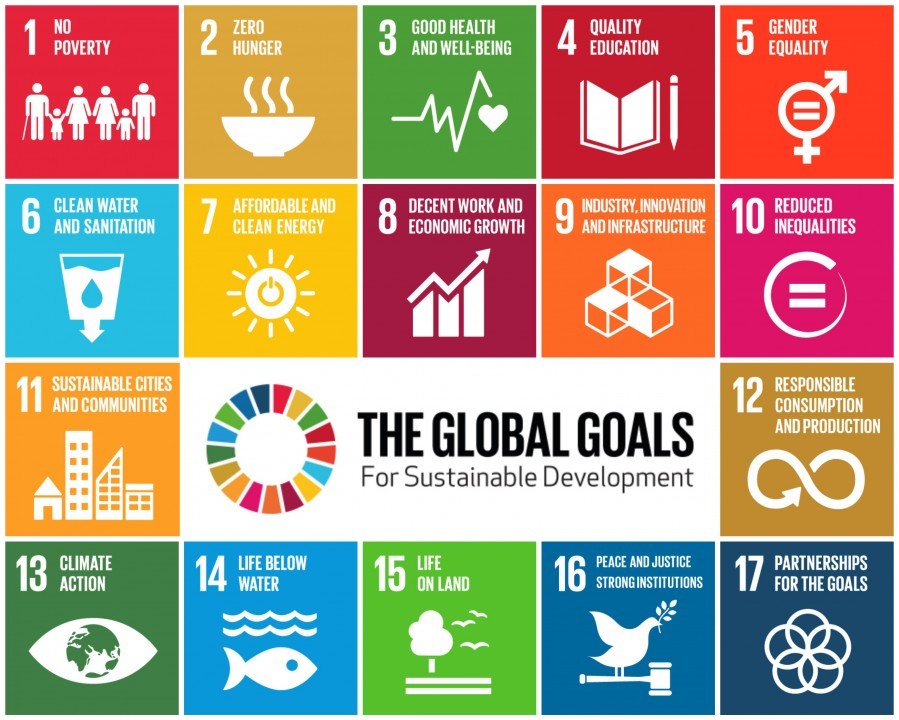Guy Cormier is chief executive, president and chair of the board of Desjardins Group, the world’s sixth largest co-operative financial group, which has been rated as one of the strongest banks in North America. He started his four-year term at Desjardins on 9 April, having been with the organisation since 1992.
Mr Cormier started as a business account manager and general manager at several caisses (credit unions). From 2009 to 2012, he was vice president of Co-operative Network Finance and in 2012 he was appointed senior vice president of the Co-operative Network. Since September 2013, Mr Cormier has led the credit union advisory committee on the Federation’s financing methods and revision of the service offer for the credit unions.
Together with the International Co-operative Alliance, Desjardins has been co-hosting the International Summit of Cooperatives since the first edition in 2012. The biennial event is expected to bring around 3,000 delegates to Quebec City for a discussion of the Power to Act of co-operative enterprises. In an interview with Co-op News, he looks more what participants can look forward to at this year’s edition…
Anca Voinea: The first edition of the International Summit took place in 2012 – what has been achieved so far and what is your vision for this year’s edition?
Guy Cormier: It was great to be able to launch our inaugural Summit during the International Year of Co-operatives. It had several objectives: bring the global co-operative community together, share our successes, learn from each other, discuss our challenges, advance academic research on this economic model and unveil studies on the impact of co-operative businesses in the world. The objective was also to say: we exist, we are many and we have the future in our hands. It ended with a declaration affirming the importance of co-operatives, and their role in stabilising the economy, providing leverage for economic and community development. By doing so, we were able to demonstrate the Amazing Power of Cooperatives. Shortly before the second Summit, co-operatives were invited for the first time to participate in the discussions of the B20, the business forum held parallel to the G20.
The 2014 Summit returned to showcasing co-operatives’ unique ability to consistently adapt and innovate to meet the changing needs of their members. This second Summit marked an evolution. We moved from recognition to engagement. The co-operative community presented itself loud and clear as a solution to three of the biggest challenges facing humanity: food security, job creation and access to health services. For each of these challenges, co-operatives declared that they can be part of the solution. Action plans were adopted with information sharing mechanisms. This led to the Blueprint for a Co-operative Decade, the 2020 vision of the International Co-operative Alliance.

With the theme of – Cooperatives: The Power to Act – the 2016 Summit will give the opportunity to think about the new socio-economic and geopolitical realities in the company of some of the world’s best in their fields. Participants will get to review the challenges that await co-operatives and mutuals, as well as the most promising options for tackling those challenges and to take part in workshops where they will identify concrete actions to resolve the key issues around the world. It will highlight the significant impact of co-operatives and mutuals on the well-being of people and communities through sustainable development. An event not to miss!
Anca Voinea: The Summit will touch upon a number of topics related to the power of co-operatives to act but is there one main issue co-operators should be focusing on?
Guy Cormier: We continue to work on the main concerns raised in the Alliance’s Blueprint for a Co-operative Decade. Cooperatives and mutuals face the challenge of finding the right path to growth while maintaining their values. For this reason, the 2016 Summit umbrella theme is – Cooperatives: The Power to Act. From October 11 to 13, participants will:
- Review the current social, economic and geopolitical situation
- Delve deeply into the key factors leading to success, including innovation, working in the digital age, commitment to community, access to capital, big data and the collaborative economy.
- Discuss sectoral challenges and opportunities in the following areas: Agriculture and Agri-Food Industries, Banking and Financial Services, Insurance, Health and Social Services, Wholesale and Retail Trade, Industry, Services and Energy and Forestry.
- Take part in a collective brainstorming session on the United Nations Sustainable Development Goals (SDGs). This activity will nurture common concrete actions related to food security, employment, access to healthcare and social services, poverty and social inclusion, along with climate change and sustainable development.
I have to say that many sectoral meetings are linked to the SDGs. The 2030 Agenda for Sustainable Development represents an unparalleled opportunity to showcase the contribution of co-operatives and mutuals to the well-being of people and communities. By doing so, we raise the awareness of our wonderful business model.
We want co-operative and mutual leaders to leave the Summit with a wealth of new ideas and strategies that will help them boost the performance of their organisations and their contribution to SGD goals.
Related: Q&A with The Alliance’s Monique Leroux ahead of the 2016 Summit
Anca Voinea: One of the key topics that speakers will be analysing is the contribution of co-operatives to the UN’s Sustainable Development Goals. How can co-operatives help to achieve these?
Guy Cormier: Co-operatives have always participated in economic, social and environmental sustainability. By their very nature, they are sustainable enterprises with a focus on human well-being and collective welfare.
Owing to their values and principles, co-operatives are enterprises that are constantly striving to meet the needs of individuals and know how to bring communities together.
Lastly, co-operatives are major economic players. They account for more than a billion members, 250 million jobs and USD $3tn in turnover. Although their influence is global, it remains rooted in the local and regional economy. They are therefore well positioned to play an active role in resolving major global issues by meeting local and regional needs.
As a financial institution of a co-operative nature, the Desjardins Group expresses its commitment to sustainable development and social responsibility through its mission and business practices. Desjardins contributes directly and indirectly to the socioeconomic development of communities across all of Quebec, Canada and the world. It does so through its local economic activity, its support for business development and employment, education and training for its members, managers and employees, and its assistance for structuring projects and the missions of various organisations, as well as through Développement international Desjardins.
Co-operatives are powerful levers for sustainable development. Now more than ever before, we will have to put members first in our actions, especially young people because the future belongs to them.

Anca Voinea: Another key topic at this edition is the ability of co-operatives to innovate. You have been with Desjardins since 1992, helping it to adopt new innovative technology-focused service centres. Are there specific challenges that co-operatives face when seeking to innovate?
Guy Cormier: The financial services industry is undergoing substantial technological upheavals, from contactless payments to e-wallets, loan platforms and robo-advisors. Of course, it wasn’t so long ago that Canadian banks were only accessible during business hours. And that was precisely the time most clients weren’t able to go. But things have changed, and it was driven by consumers who demanded a different kind of banking relationship.
So it’s important for us to stay connected to our members and clients. This allows us to maintain their trust and to ensure we’re meeting their needs. In terms of these emerging technologies, co-ops need to be innovative to remain relevant, while maintaining a personal touch when members want more of a face-to-face interaction. Co-ops must be financially strong to meet the important challenges ahead and must carefully manage costs.
Contrary to popular opinion, fintechs are an opportunity—not a threat. They’re an opportunity for cooperatives to explore new avenues, to build strategic partnerships, to become more agile and to trim costs. They can also help us to reinvent ourselves, to add more value to the services we offer and to redefine, in a way, the client experience.
For example, Desjardins worked with a fintech company to design the Ajusto mobile app which monitors its insureds’ driving habits as a way to reduce their premiums. Another example is the creation of Monetico, a jointly owned payment solutions company created by Desjardins and France’s Crédit Mutuel.
“Intercooperation” is another challenge that is key to meeting the needs of our members and contributing to the development of our communities in a coherent and effective manner. We need to do more of it. It’s a powerful driver of growth and development, but also a fundamental aspect of the many relationships Desjardins Group has with the cooperative world at the local, national and international levels.
Related: Ten things to look forward to at the International Summit of Cooperatives
Anca Voinea: The Summit is also running a Young Leaders Programme. Five years ago you were selected as one of 55 leaders for the 2011 G20 Youth Summit to provide input to International Monetary Fund, World Bank and European Bank managers. Reflecting on that experience, do you have a message for young co-operators?
Guy Cormier: During the G20Y, I became convinced that market globalisation and communication alone cannot solve all of the world’s problems. Sometimes, there are limits to what international coordinating bodies can accomplish.
I, nonetheless, took away some important lessons from my participation. For example, that it is still possible, in this day and age, to pool ideas and different expertise in order to address very complex domestic and global issues with which we are sometimes faced. We can do this by building on the contribution and enrichment that various stakeholders can bring to the table for consistent and joint implementation of promising solutions.
Since I had worked in the co-operative sector for a number of years, the G20Y Summit merely confirmed what I already knew: the co-operative model is an extremely powerful way of growing and changing our world. We do not realise often enough just how critical sharing resources for a greater purpose than oneself is to our collective happiness today.
For all those reasons, young co-operators should take this opportunity to participate in this year’s Summit Young Leaders Programme.
In the past two editions close to 10% of the participants were young professionals aged 20 to 35 from the five continents. From the start, the Summit decided that the Young Leaders Programme should allow participants to access all of the activities of the Summit’s general program at a 50% discount. I would like to take this opportunity to thank the many organisations, co-operatives and mutuals, who understand the value of this opportunity for the next generation of leaders and to promote the programme within their respective organisation. They are the leaders of tomorrow!
- For more of our coverage of the International Summit of Co-operatives, visit thenews.coop/summit.

